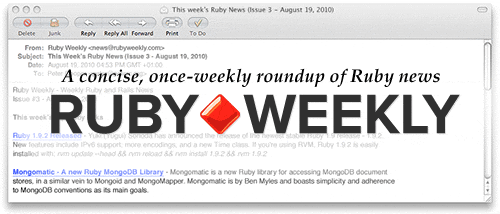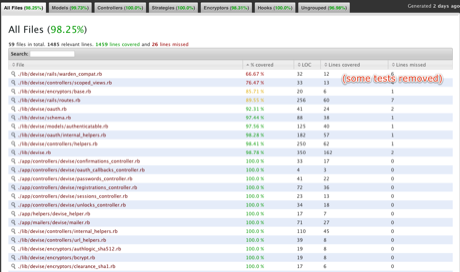
Infinity Test is a new library by Tomas D’Stefano that pitches itself as a “flexible alternative to Autotest.” If you want your project’s tests (both RSpec or Test::Unit are supported) to be automatically run when changes are made, this is a great place to start.
The big benefit of Infinity Test is the support for testing across multiple Ruby implementations, powered by RVM (a candidate for Ruby project of the year, if ever there were one). For example, if you have some Test::Unit tests that you want to be run on Ruby 1.8.7, JRuby, Ruby Enterprise Edition, and Ruby 1.9.2, you could run:
infinity_test –test-unit –rubies=1.8.7,jruby,ree,1.9.2
There’s also a configuration file system with its own DSL to build more complex automated testing systems with customized notification systems and callbacks. Read More









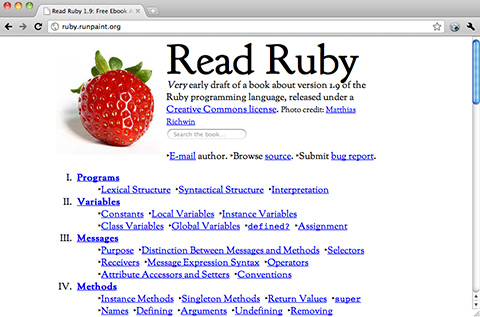
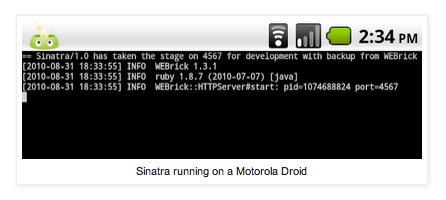
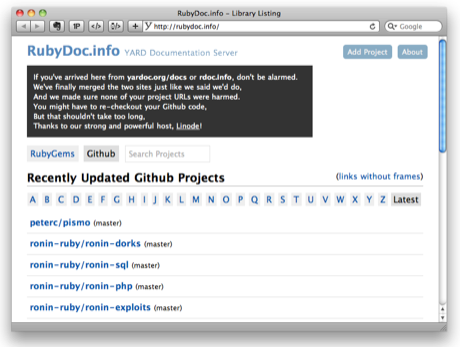
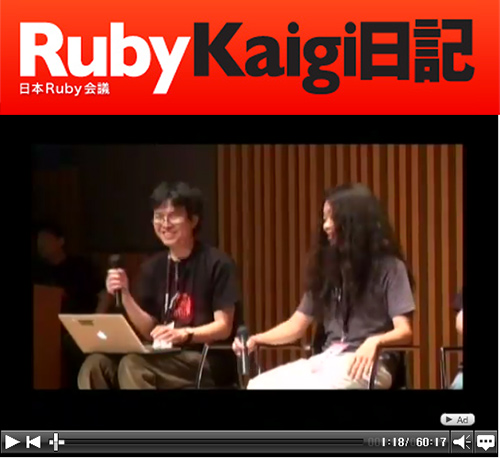
 DHH rings the bell and announces that
DHH rings the bell and announces that 